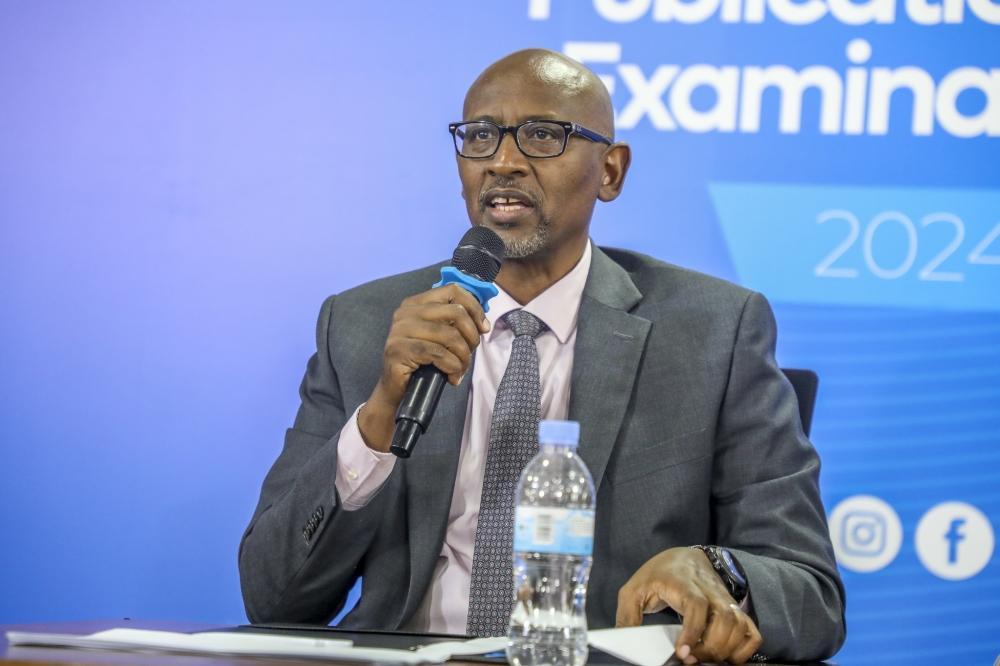Africa-Press – Rwanda. As the long holiday winds down, the familiar rhythm of “back-to-school” has taken over households across Rwanda.
Streets are busier with parents heading to uniform tailors and bookshops, while social media platforms buzz with exchanges about requirements.
For many parents and guardians, the relief of securing school placements for their children earlier this month has quickly given way to a new set of financial and logistical hurdles: meeting school requirements for the new academic year.
The shift from celebration to calculation has been sudden. For many parents and guardians, the relief of securing a school placement has quickly been replaced by the stress of meeting a long list of school requirements, a second mountain to climb after the first.
School requirements spark social media buzz
Over the past week, social media platforms have been flooded with screenshots, and memos issued by schools – outlining student requirements for the 2025/2026 academic year.
These lists, ranging from standard items to more unusual demands, have sparked widespread public discussion about the financial and logistical pressures households face at this time of year.
Journalists like Angeli Mutabaruka and Oswald ‘Oswakim’ Mutuyeyezu have played a central role in amplifying the conversation by sharing some of these memos online.
Social media has amplified parents’ voices, with posts highlighting recent memos from schools such as G.S. Runyombyi, St. Vincent Muhoza, and GS Kinyinya,
At G.S. Runyombyi, for example, parents were asked to pay tuition along with additional fees to cover school materials, meals, and other classroom needs. One notable case involved a single T-shirt being priced significantly above its normal market value.
At St. Vincent Muhoza in Musanze District, a small fee was introduced for supervising students outside regular school hours. Meanwhile, at GS Kinyinya, parents reported being charged for examination photocopies and midday meals.
Parents are also expected to provide a variety of items, including cleaning and hygiene supplies, stationery, basic bedding, sportswear, and calculators.
Altogether, these costs often added up to amounts that stretched, or exceeded household budgets. While not representative of all schools, these examples provide a snapshot of the kinds of requirements that have captured public attention.
A recurring back-to-school challenge
Securing a school placement is often just the first hurdle. Once children have confirmed spots, parents are faced with the challenge of meeting various school requirements.
These typically include tuition fees, uniforms, stationery, textbooks, food contributions, and, at times, unexpected charges such as caution money, maintenance fees, or extra activity costs.
Jean de Dieu Munyemana, a father of three with children in different schools, shared the difficulty of keeping up. “Every year, it feels like the requirements change and increase. Even when I prepare in advance, I’m caught off guard by new items,” he said.
“This year, one school asked for caution money in addition to everything else. Another raised school meal fees by nearly 15 per cent. It’s becoming very hard to manage,” Munyemana added.
For Claudine Mumporeze, a resident of Masoro in Gasabo, and mother of two primary school children, the pressure is intensified by the lack of consistency across schools.
“The government sets limits for public and government-aided schools, but private schools can charge almost anything,” she explained.
She added, “Parents are left to negotiate or risk losing their children’s places. As a mother, I want my children to stay in school, so I make sacrifices to ensure that happens.”
Regulatory framework and official guidance
To address these concerns, the Ministry of Education (MINEDUC) has issued clear guidance regarding parental contributions.
In a reminder published on August 25, 2025, the ministry referred to its original directives from September 14, 2022, reiterating that financial contributions in public and government-aided schools must stay within established limits.
For the upcoming academic year, MINEDUC specified the following maximum fees per term: boarding schools should not charge more than Rwf 85,000, day secondary schools are limited to Rwf 19,500, and pre-primary and primary schools should not exceed Rwf 975.
Additionally, secondary schools may add up to Rwf 7,000 per term if this is approved by the parents’ general assembly. Any charges exceeding these limits must receive prior approval from the parents, the relevant district authorities, and MINEDUC itself.
The directive also reminded schools that no fees or requirements should be imposed unilaterally, reinforcing the government’s commitment to keeping education affordable and accessible.
While the framework is clear for public and government-aided institutions, private schools are not bound by the same fee caps.
The school calendar countdown
The timing of the school year has added urgency to ongoing conversations. Some schools following international curricula reopened in late August, while private and government-aided schools are scheduled to resume on September 1, and September 8, 2025, respectively.
On August 25, the National Examination and School Inspection Authority (NESA) released the detailed school calendar for the 2025/2026 academic year.
Term I will run from September 8, to December 19, lasting 15 weeks. Term II will span January 5-April 3, 2026, lasting 13 weeks, followed by a two-week holiday. Term III will begin on April 20 and end on July 3, 2026, lasting 11 weeks, followed by a two-month holiday.
Practical exams are scheduled from June 1-June 19, with the Primary Leaving Examinations set for July 7–9, and the Secondary National Examinations from July 15-24.
NESA also noted that schools in Kigali affected by the 2025 UCI Road World Championships will be informed of any schedule adjustments.
Rising costs and financial considerations
Schools cite higher costs for meals, utilities, and extracurricular programmes as reasons for increasing fees. Many have raised tuition by 10 to 20 per cent this year alone.
“Parents understand that schools face rising costs,” said Mumporeze. “But sudden fee increases leave us little time to adjust. It often feels like the responsibility always falls on families, and the timing can be very difficult to manage.”
Social media as a platform for dialogue
This year, social media has amplified parents’ voices. Parents have been exchanging experiences, offering advice on sourcing affordable materials, and engaging in debating the fairness of certain charges.
While some posts expressed frustration, others showed solidarity – organising book swaps, sharing second-hand uniforms, or pooling resources to buy supplies in bulk.
Online platforms are increasingly serving as informal support systems, highlighting both the pressures families face and their resilience.
Balancing needs between schools and families
Education specialists stress that collaboration remains essential. Schools must balance rising operational costs with the responsibility of keeping education affordable. Parents, in turn, seek transparency and predictability to plan ahead.
The Ministry of Education’s directives provide a framework for public schools, but experts argue that stronger parent-school dialogue is needed across all institutions, including private ones.
Active parent associations, regular consultations, and clear communication can prevent misunderstandings and foster trust.
Preparing ahead
These conversations suggest that parents are becoming increasingly aware of their rights, school regulations, and the importance of holding schools accountable, while striving to maintain a constructive and collaborative approach.
As the 2025/2026 school year begins, with some schools reopening this week and others on September 1, the challenge is to ensure that financial pressures do not overshadow the joy and purpose of education.
Some parents are urging the government to hold schools accountable.
“At the end of the day, I want the best for my child. I am willing to work hard and pay for my child’s education, but my hope is that my child receives a good education and that I get value for my money. Sometimes, parents and guardians pay a lot for meals, but children are given substandard food,” says Aimable Gahindiro, a parent.
“My wish is that the ministry and other authorities inspect and verify whether schools are truly providing value for the money parents pay, in terms of quality and services,” he says.
“We are seeing a trend where schools are becoming commercialised, and this could have negative consequences,” he adds.
For More News And Analysis About Rwanda Follow Africa-Press






